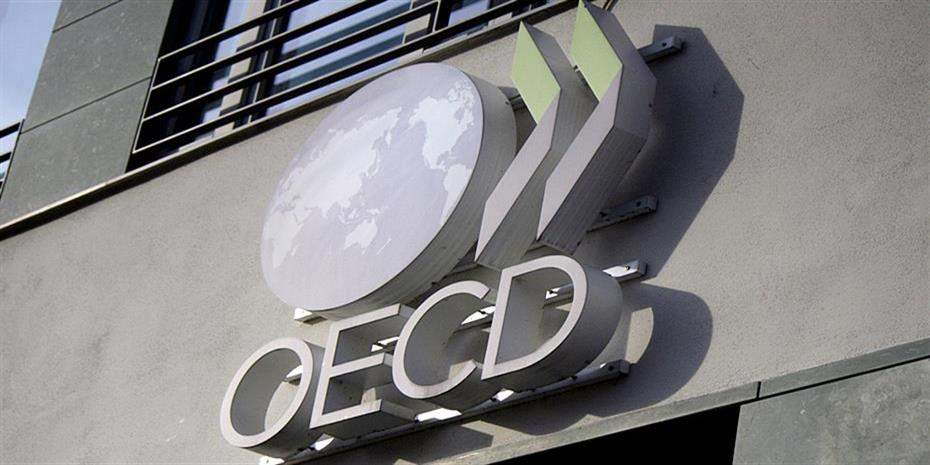
Greece has made significant structural reforms in recent years and is continuing its reform agenda with several ongoing and planned measures, the OECD says in its OECD Economic Survey released this morning.
"Many reforms address key issues highlighted in this and previous reports on Greece," added the OECD, which noted that the Greek economy is strong and is projected to grow at 2.2 percent in 2025 and 2.5 percent in 2026.
In a report yesterday, moreover, on the outlook for the global economy, the OECD said that structural reforms have brought benefits as Greece, along with Spain and Portugal, is among a few member countries of the organisation where potential per capita growth has been revised positively.
The international organisation notes that the growth of the Greek economy and further progress in tackling tax evasion will boost public revenues and create fiscal space for priority measures while increasing primary surpluses.
On the financial system, it notes that its resilience has improved significantly since 2007, with the credit rating of Greek banks having improved accordingly in recent years. It cites in particular the reduction, thanks to the Hercules project, of the non-performing loan (NPL) ratio to 6.9% in June 2024 from a high of 49.1% in March 2017. The Hercules plan was extended to 2024, "but additional measures could further improve loan restructuring and bankruptcy procedures as well as the management of NPLs now under the control of servicers.".
Banks' profitability and capital ratios have also improved, although the latter remain below the OECD average. "However, long-term profitability and capital adequacy remain sources of concern," according to the report, which highlights that the quality of banks' regulatory capital remains low, weakening their ability to absorb losses as 41% of this capital was made up of deferred tax credits in June 2024.
For public debt, the OECD expects it to decline as a percentage of GDP, and its baseline scenario projects it to fall to 90% in 2060, or 75% if growth is stronger, for example, if the reforms of the national recovery and resilience plan are fully implemented.
Despite reductions in taxation in recent years, "the tax burden on labour remains high, especially in terms of social security contributions," the report notes, adding that a further reduction could increase employment while reducing incentives for self-employment.
It proposes reducing the €10,000 tax-free threshold, which it says corresponds to 61% of average annual wages and exempts half of Greek households from income tax. "This narrow base is one of the reasons why Greece has less personal income tax revenue than other countries, even though it has higher tax rates above the tax-free threshold."
On VAT, the OECD says there is significant room for improvement as the "compliance gap" (i.e., revenue loss) has narrowed but remains among the highest in the European Union. "The improved but still low level of compliance continues to limit revenues despite high rates." In particular, it proposes to phase out exemptions from the standard VAT rate where there is no evidence that they reduce income inequality, citing, for example, the lower rates applicable to tourism.
The OECD proposes to reduce taxes for the low-paid by lowering social security contributions, alongside a reduction in the tax-free threshold.
It also proposes increasing the excise duty on cigarettes and imposing a tax on foods rich in fats, sugar and salt, which are harmful to health.
Among other proposals made by the agency are:
- Reforming unemployment benefits so that they are linked to past earnings and increase their duration based on contribution history, while improving incentives to work
- Consolidating the various support programmes for low-income households and simplifying eligibility conditions
- Financing new subsidies for electric vehicles by increasing the VAT on diesel
- The rapid implementation of the one-stop shop for renewable energy investments and the revision of the procedures for environmental permits.






